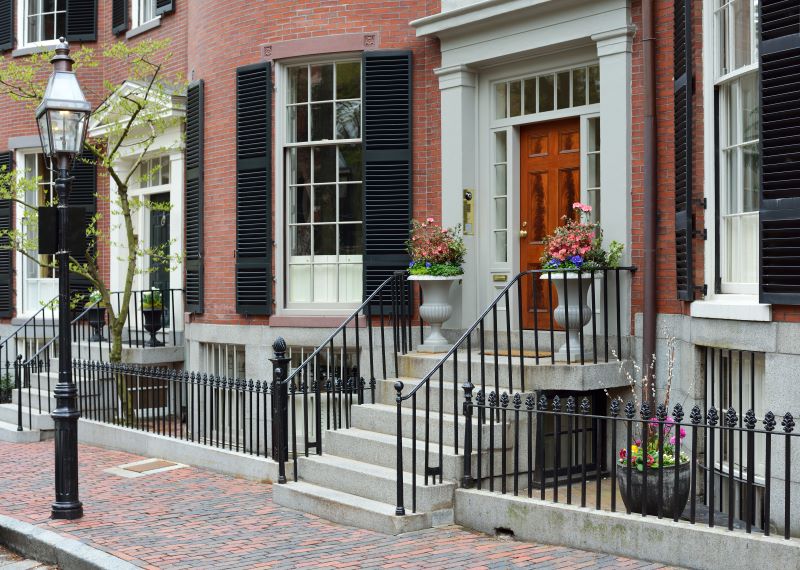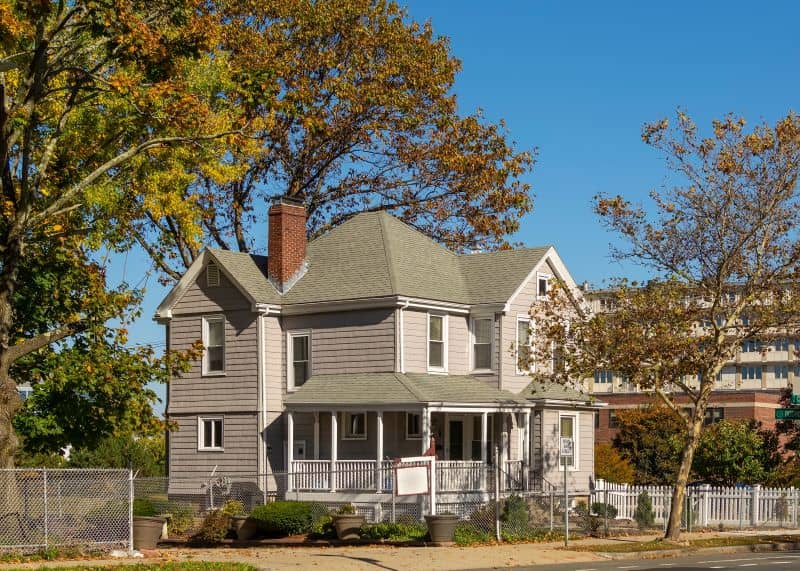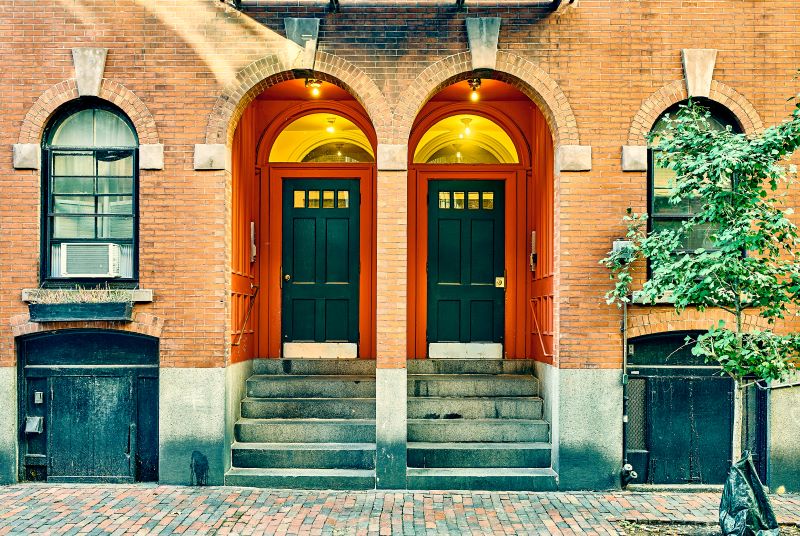
Houses
The Boston real estate market is currently classified as having “slowed”. And it has, when you’re talking about the number of units sold. But when you factor in the increase in average selling price, Greater Boston real estate market is faring alright. In fact, it’s doing better than alright. Boston’s real estate market is leading the U.S. in Covid-19 real estate market comeback. If 100% is how the market was doing in January of 2020, before the pandemic upended the U.S., Boston is in the top market recovery spot in the country at 122.52% (followed distantly by Seattle and New York at 113.73% and 112.74%, respectively). How has it rebounded? Simple supply and demand.
As we covered in another article, there’s been a general shift in the Boston housing market demand from smaller square footage in the city center to single-family properties on the outskirts of town, in the suburbs, or even in rural areas. Millennials, who have been considered City Center Renters for years, have opted for better real estate bang-for-buck near or beyond (and in some cases, far, far beyond) the city limits. Thanks to Covid-19, working remotely is becoming the norm for an increasing number of Bostonians, and with that comes the need/desire for 1) a home office or two and 2) more space to cohabitate 24/7 peacefully and sanely with a significant other and maybe kids. And the presence of the latter would require even more room(s) for sleeping, remote learning/homeschooling, and playing. What we’ve been seeing in Boston is consistent with that current trend– a departure from urban living, at least for now. So Millennials are generally creating demand.
The supply, on the other hand, is held by an aging Baby Boomer population. One third of U.S. real estate is owned by that age group. (Let’s assume, then, that the Greater Boston area’s demographics are consistent with those numbers.) Instead of downsizing to lower maintenance properties or assisted-living facilities, Boomers are holding on to their homes and aging-in-place, which has greatly limited the available houses for purchase. So Boomers are generally limiting supply. When low supply meets high demand, prices go up.
So even though the overall number of houses sold has decreased since this same time last year, prices for Greater Boston area homes have increased, thanks in large part to the bidding wars that the low housing supply has created. The Boston real estate prices pre-Covid-19 ($652,000 as a high in 2018) were already higher than the national average (roughly $260,000 in 2018). As of this summer, the median selling price of homes in the greater Boston area (at $700,000) is still twice that of the national average, which, at around $349,000 is also a record high for the national average.
But how is the market outside of single-family homes?
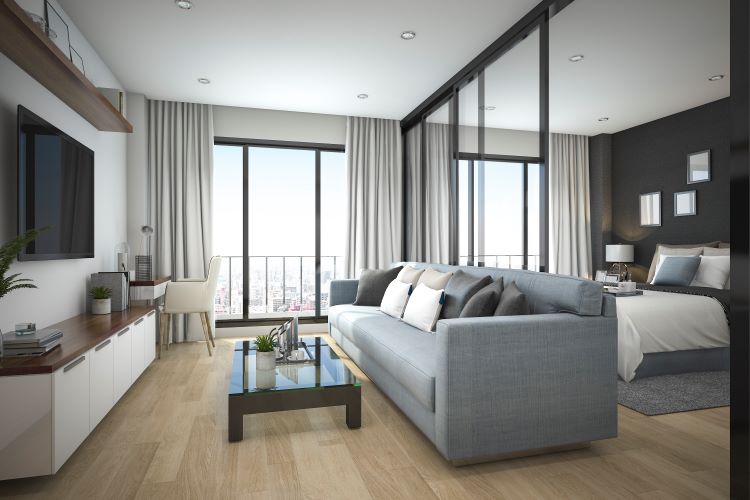 Condos
Condos
Owned multi-family dwellings like condos have not fared as well as their single-family counterparts. But the situation is far from grave. Condo sales have almost always been behind single-family home sales in both units sold and median selling price. They are affected by the same ebbs and flows of the real estate market, but in general have fewer units sold at a lower average price. This could possibly be explained by there being fewer units available overall (condos generally are located in the city center, whereas single-family homes are everywhere). Condo listings in Boston have increased 20%, meaning there are more units available, which in normal times would be unheard of in the Boston housing market. According to the Boston Globe, there are two mainstays in condo purchasing that have been noticeably absent this year– Boomers who are downsizing (the lack of which is discussed above) and foreign investors, who, for Covid-19-related reasons have not travelled overseas.
Despite the absence of those primary condo purchasers, with the median price point still hovering just shy of $600,000 despite an overall downturn compared to the same time last year, there’s still an interest, and people who are willing to pay that (or even more for the right neighborhoods) in spite of the pandemic. So just because the Boston condo real estate market overall isn’t net positive in 2020, it doesn’t mean that we’ll see 2008-esque dismal numbers. According to the Greater Boston Association of Realtors, the number of units sold went down, but the percentage change on selling price was only 2%. So while the condo market has “softened”, there are still people willing to bank on a future where condos in Boston are a hot, hot commodity once again.
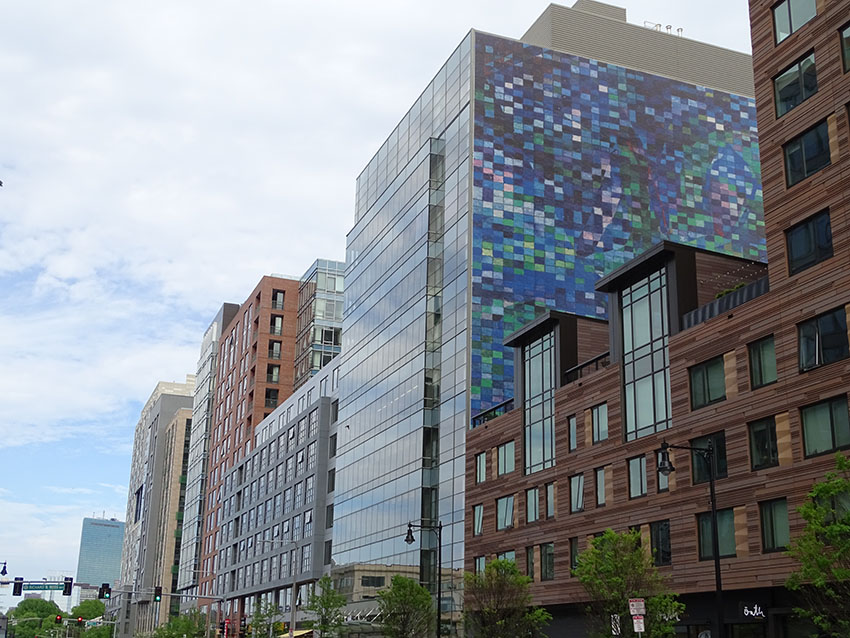 Renting in Boston
Renting in Boston
If your palms get sweaty and your throat gets dry when you hear the words “30-year mortgage”, congratulations, because this is *your* time– (apartment) renters, rejoice! Because, as you know by now, there’s a general trend of people leaving the city in search of greener, more spacious pastures in the suburbs. But experts (and history) generally agree that people return to the cultural hubs/cities once crises abate. So it would be safe to say that these rental incentives won’t last. Get in on them while you can. If you ever had the inclination to rent an apartment in Boston, in the immortal words of fellow Bay Stater, John Cena, “The time is now.”
We’ve all been told that it’s better to buy real estate than rent in perpetuity. But the Boston housing rental market condition is such that if you’re at all interested in renting an apartment, it would be a good time to put off that mortgage payment for another year. In addition to the local workforce, many of whom have decided to ride out Covid outside of the city, Boston is also home to 35 colleges and universities whose students make up 20% of the local population. Most of those schools have chosen to go online or implement a hybrid online/in-person curriculum for the 2020-2021 school year, which has affected the demand for off-campus residences (read: apartments).
The main effect of the temporary escape from the city is vacant apartments. And in an effort to fill them, landlords are making sweet deals.
In normal times, to lease an apartment, in addition to paying high monthly rent, especially in a desirable city like Boston, you’d have to pay first month and last month’s rent, a security deposit (the equivalent of a month’s rent), and broker’s fees, totalling thousands of dollars you’d have to pay upfront just to move-in. To lease an apartment in Covid-19 times, you might be able to rent that same apartment with a waiver of any or all of the move-in costs. You might be able to have a dog in an otherwise pet-free place. You might even be likely to negotiate your monthly rent with the landlord or get a month or two free. You could get a flat screen TV or a big Amazon gift card out of it, too. Or any combination of the above. Landlords have also been bypassing income requirements and accepting unemployment income as satisfactory credit.
We’re big believers in “If it’s too good to be true, it probably is.” And that’s not to say that these incentives we’re hearing about aren’t true, but what’s the catch? Well, unfortunately, you can’t live in a $2,500/mo. 3 bedroom in Beacon Hill forever. That’s the caveat we’re offering: that while it’s nice to have these perks currently, we really can’t expect them to last. If history is any indication, departures from city living are typically temporary. So when people return to the cultural hubs, expect real estate prices to be driven up again accordingly. To be fair, reduced monthly rents of $1,000 aren’t the norm, (the average rent reduction in the Boston real estate rental market currently is between $100-$400 a month plus fee waivers) so the sticker shock when landlords inevitably try to recoup losses in a year won’t be as jarring.
Slashed rents or waived move-in fees are wonderful for the renter for right now, and it’s a great time to try living in a neighborhood you might not otherwise consider. But understand what the return to normal will look like, whenever that happens, and be prepared for an increase in rent, and maybe a steep increase at that, and maybe having to move again sooner than you anticipated. At some point the rental rates in Boston will return to their former glory.
Tl;dr
Is it better to buy or rent in Boston, Massachusetts? If you’re looking to purchase a single-family home either in Boston or in its surrounding areas, you might end up paying more right now than you normally would, but with the record low interest rates on mortgage loans, it could end up netting the same over time or even result in a great ROI if Boston real estate trends resume their pre-Covid upward trajectory, which we believe they will. After all, the Boston housing market is already on its way back and leading the country in recovery. If you ever wanted to buy a Boston condo, now would be the time to do so with record low interest rates and prices lower than normal. The Boston real estate rental market is currently favoring the renter, offering some great deals we might not see again any time soon. So if you’ve always wanted to live in Back Bay, for example, take a look at our Boston Pads’ vetted listings and see if you can find yourself a deal on a great apartment in one of the most sought after neighborhoods in Beantown.

Demetrios Salpoglou
Published September 29, 2020
Demetrios has pulled together the largest apartment leasing team in the Greater Boston Area and is responsible for procuring more apartment rentals than anyone in New England – with over 130k people finding their housing through his services. Demetrios is an avid real estate developer, peak performance trainer, educator, guest lecturer and motivational speaker.




